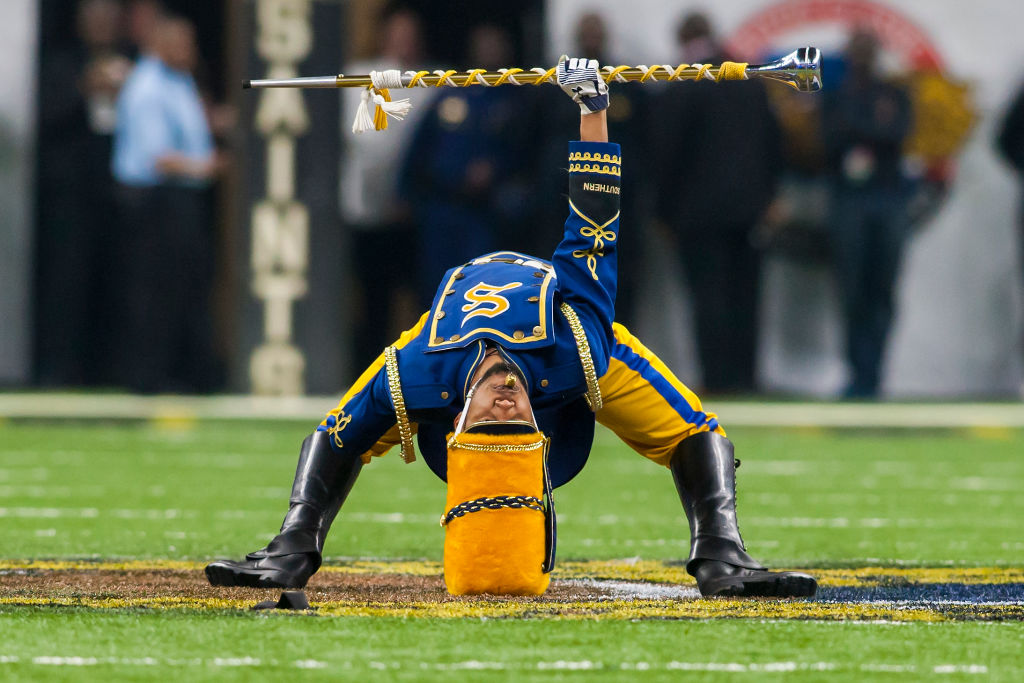
Source: Icon Sportswire / Getty
Marching bands are central to the Black college experience and Black Music Month wouldn’t be complete without honoring how pivotal they are to shaping not only HBCU culture, but the culture of the entire nation.
Bands at historically Black colleges and universities aren’t like your typical high school bands with majorettes who twirl flags—though some Black high school bands get it all the way in, too. HBCU bands get down and dirty with pageantry and showmanship. There’s high kicking drum majors and intricate formations as band members perform the latest dances, moving in unison with other band members as they play the latest songs with their instruments.
Historians connect the showmanship of Black marching bands to Egun masqueraders of the Yoruba tribe who play instruments and dance during funeral processions. Black drill sergeants and military bands are also noted by historians as precursors to HBCU marching bands, with many musicians from military bands going on to join the faculty of HBCUs. Further, “elements of syncopation, call-and-response, polyrhythms, and melodies” evident in Black bands formed after the Civil War are foundational characteristics that still exist in contemporary R&B and hip-hop today.
Tuskegee University originated the first Black college marching band which began as a military band for Tuskegee Industrial Institute. Tuskegee was the first HBCU marching band with high knee stepping drum majors and showmanship. Following Tuskegee, whose band is now called the Marching Crimson Pipers, Black collegiate bands were established at other Southern HBCUs like Alabama State and Florida A&M.
Not surprisingly, there is also a rivalry that exists between southern bands and northern bands. Donovan Carter played the saxophone for 10 years before joining Howard University’s band, affectionately known as “Showtime.” The band has performed in Las Vegas, and at Redskins and Cleveland Cavalier games. Still, even with Howard’s high profile, Carter acknowledges that the band culture is not as intense as it is with bands at HBCUs in the South—such as Jackson State’s band, the Sonic Boom of the South.
“At a school like JSU, the band culture is different. The bands are like a spectacle,” Carter says. “At Jackson State, they don’t go to the game to see the football team, they go to see the band.”
While Deion Sanders, former NFL great and current Jackson State head football coach, may beg to differ, it’s true that across the deep south, from Southern University’s Human Jukebox to
Grambling University’s World Famed Tiger Marching Band, to Alcorn State’s Sounds of Dyn-O-Mite, it’s the bands that get many fans into—and out of—their seats.
As we kick off Black Music Month kicks, it’s only right that we begin by recognizing the HBCU band culture that not only plays a pivotal role in the Black college experience, but also has deep roots in the history of Black sonic expression in this country.









